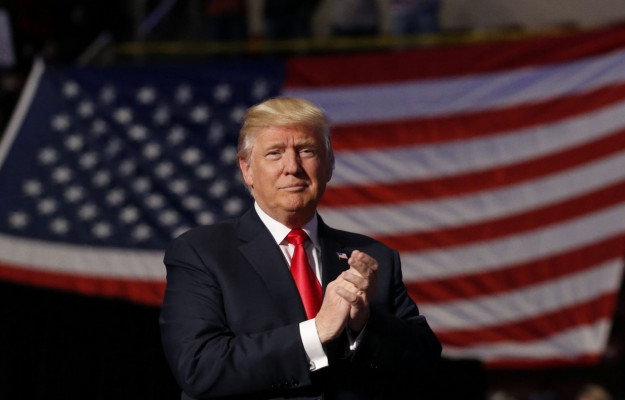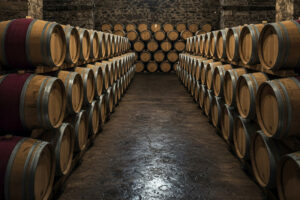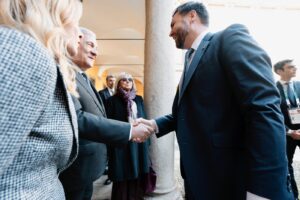On the eve of the NATO summit in London, which will bring together all the main Western leaders, U.S. President Donald Trump returns to threaten the European allies, France in particular, with the threat of new duties up to 100%, for a total of 2.4 billion dollars, in the case of approval of the digital tax on the American giants of the web, from Apple to Google, from Amazon to Facebook. The US Trade Representative’s office, which has already prepared a provisional list of products to be affected, is targeting Champagne, “pardoned” by the October short list, and various types of cheese, from Roquefort to Gruyère. For the moment it’s just a hypothesis, the Italian food and wine industry, from wine to cheese (already taxed at 25%, ed) do not seem in the sights, but the sword of Damocles does not only hang on Paris, because Washington let us know that the reprisal could also affect other countries that should follow the path taken by the Macron government, including Italy, of course, where the parliamentary debate has often brought to attention the chasm between the profits of digital giants and taxes paid in the Belpaese. US trade representative Robert Lighthizer, who presented the conclusions of the investigation ordered by Trump, explicitly mentioned Italy, along with Turkey and Austria.
Obviously, the response of Paris, which warms up even more the spirits in view of the celebrations of the first 70 years of the Atlantic Alliance, has not been awaited, according to which those of Trump are “unacceptable” threats: “the simple project, which could be applied within 30 days, of new sanctions against France, is unacceptable”, commented the Minister of Economy Bruno Le Maire. For its part, the European Commission has reiterated that “the EU will act and react with one voice and will remain united, we are coordinating with the French authorities on the next steps”. A potentially explosive situation, which arises and fits into a much larger context and long-standing dynamics. For years the USA has been asking for a greater economic effort from its allies within NATO, in a historical period in which, it should be remembered, finding resources for the countries of Old Europe is certainly not easy, not least because of a certain lack of love, reiterated a few days ago by Macron himself, for an institution that shows the signs of the time, often unable to respond to the challenges of the contemporary world. This is a situation that Washington does not like, and that only worsens the distance between the United States and the European Union, but not with Italy, which is preparing, reassures Prime Minister Giuseppe Conte, for a “bilateral with Trump in which we will discuss the issue”.
Copyright © 2000/2026
Contatti: info@winenews.it
Seguici anche su Twitter: @WineNewsIt
Seguici anche su Facebook: @winenewsit
Questo articolo è tratto dall'archivio di WineNews - Tutti i diritti riservati - Copyright © 2000/2026







































































































































































































